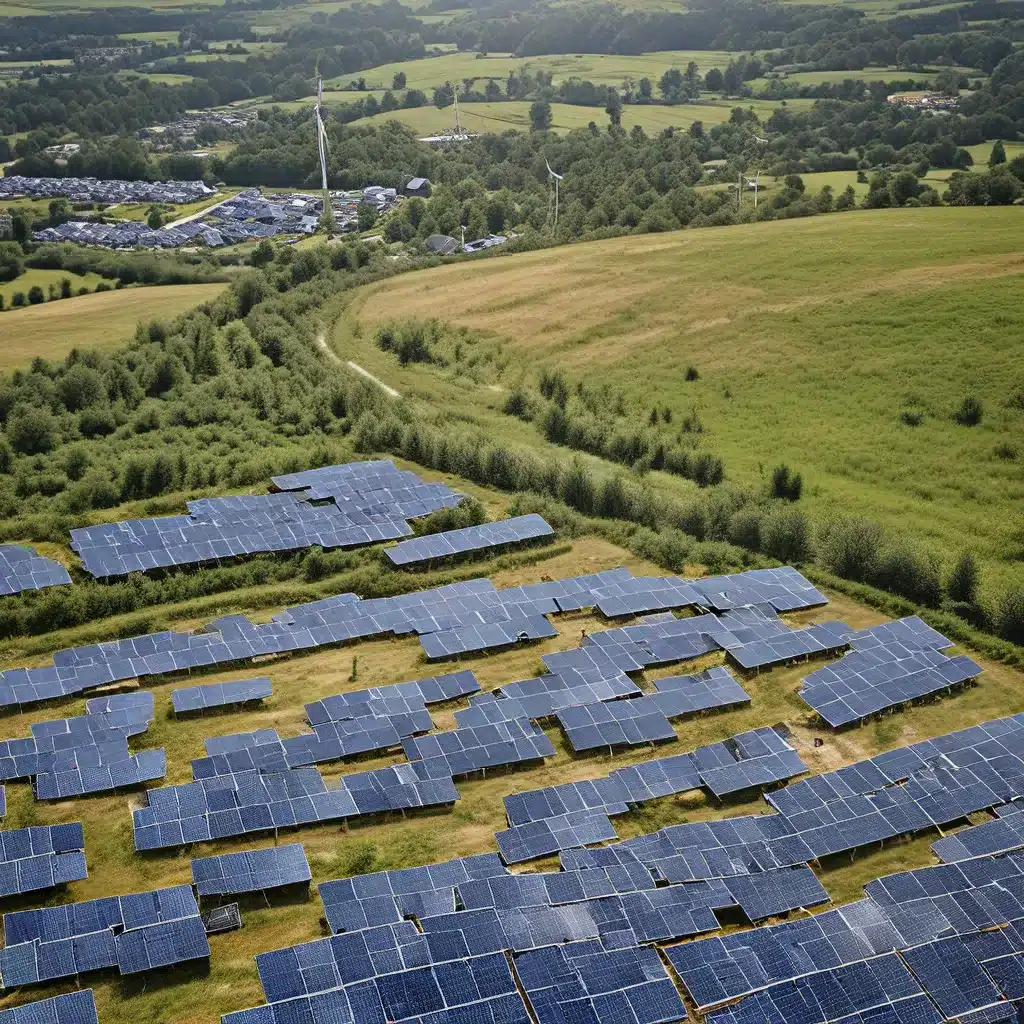
As someone who’s deeply passionate about environmental sustainability and community wellness, I’m excited to explore the incredible connection between renewable energy and public health. It’s a topic that’s near and dear to my heart, and I’m eager to share my insights with you.
The Ripple Effects of Clean Energy
When we talk about the benefits of renewable energy, the first thing that often comes to mind is the positive impact on the environment. And rightly so – clean energy technologies like solar, wind, and geothermal produce virtually no harmful emissions, which are the primary driver of climate change and air pollution. But the benefits of renewable energy go far beyond just environmental preservation. They also have a profound effect on the health and wellbeing of our communities.
One of the most significant ways renewable energy impacts community health is through the reduction of air pollution. Burning fossil fuels, such as coal and oil, releases a cocktail of nasty pollutants into the air, including particulate matter, nitrogen oxides, and sulfur dioxide. These pollutants have been linked to a host of respiratory and cardiovascular problems, from asthma and lung cancer to heart disease and stroke. By transitioning to clean energy sources, we can dramatically improve air quality and reduce the incidence of these health issues.
But the benefits don’t stop there. Renewable energy also protects our water and soil from the damaging effects of fossil fuel extraction and consumption. When we rely on sources like oil and natural gas, there’s always the risk of spills, leaks, and other forms of contamination that can pollute our precious natural resources. Clean energy, on the other hand, operates with minimal environmental impact, ensuring that our communities can enjoy safer, healthier drinking water and soil.
Renewable Energy and Environmental Justice
One of the most important aspects of the renewable energy revolution is its potential to address long-standing environmental justice concerns. Historically, low-income communities and communities of color have borne the brunt of the negative health impacts associated with fossil fuel usage and pollution. These vulnerable populations are often located near industrial sites, power plants, and other sources of air and water contamination, leading to disproportionately high rates of respiratory illnesses, cardiovascular problems, and other health issues.
By transitioning to renewable energy, we have the opportunity to level the playing field and ensure that all communities have access to clean, affordable, and reliable power. This not only improves overall public health outcomes, but it also upholds the fundamental human right to a healthy, safe environment. The U.S. Department of Energy and its Office of Energy Efficiency and Renewable Energy (EERE) are at the forefront of this crucial effort, working to correct the systemic injustices that have plagued vulnerable communities for far too long.
Renewable Energy and Resilience
Another remarkable benefit of renewable energy is its ability to enhance community resilience in the face of natural disasters and other emergencies. When the power grid goes down due to storms, fires, or other events, access to reliable energy storage and backup power can make all the difference in ensuring that communities can quickly recover and maintain essential services.
Firewinder, for example, offers innovative renewable energy solutions that can provide uninterrupted power and rapid response during times of crisis. By investing in solar, wind, and energy storage technologies, communities can build a more resilient infrastructure that protects their physical and mental health during times of need.
Moreover, the affordability and accessibility of renewable energy are crucial factors in supporting overall community wellbeing. When energy is affordable and reliable, it eliminates the need for difficult decisions, such as choosing between paying electricity bills and purchasing essential goods like food or medicine. This, in turn, can have a significant positive impact on both physical and mental health outcomes.
The Future of Renewable Energy and Community Health
As we look to the future, the potential for renewable energy to transform the landscape of community health is truly exciting. With ongoing advancements in technology, innovation, and policy, we’re likely to see even more dramatic improvements in air quality, water and soil purity, and overall environmental wellness.
And the best part? The future is already here. Across the country, communities are embracing the power of renewable energy, reaping the benefits of cleaner air, safer water, and more resilient infrastructure. From weatherizing and retrofitting homes and buildings to investing in solar, wind, and energy storage, there are countless ways that individuals and communities can take action to improve their environmental wellbeing.
So, what are you waiting for? Let’s dive in and explore the incredible synergies between renewable energy and community health. Together, we can create a brighter, healthier, and more sustainable future for all.

